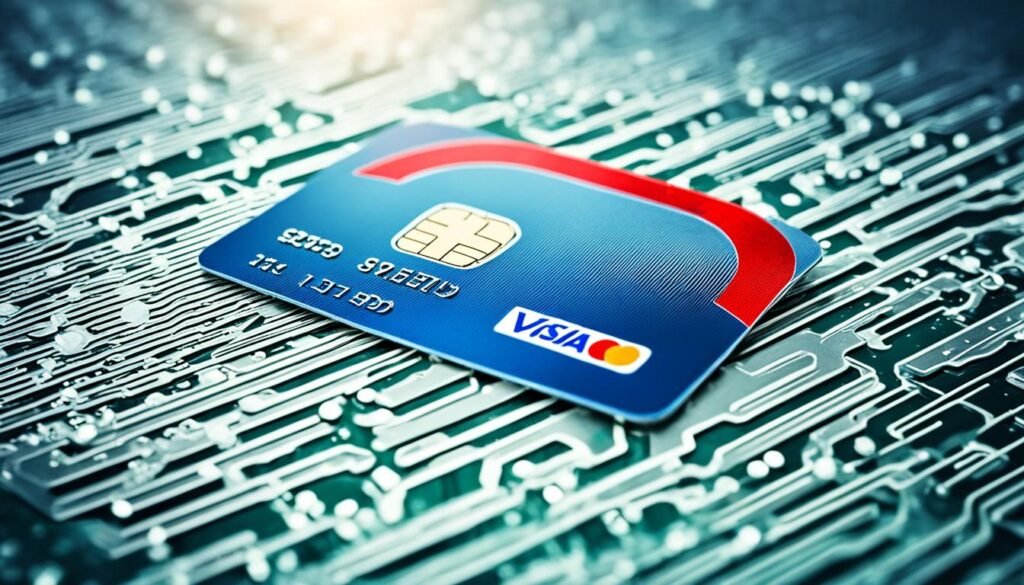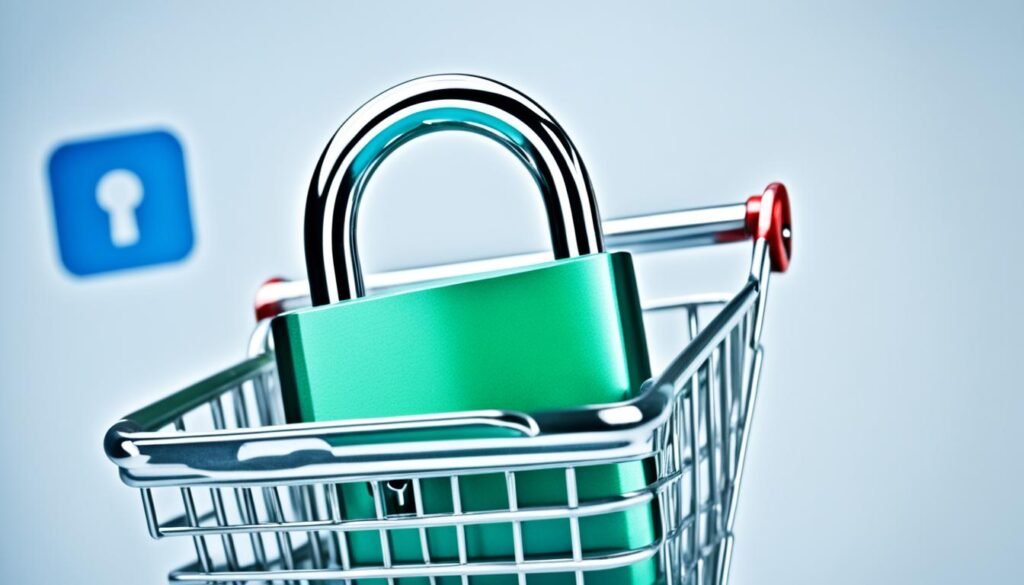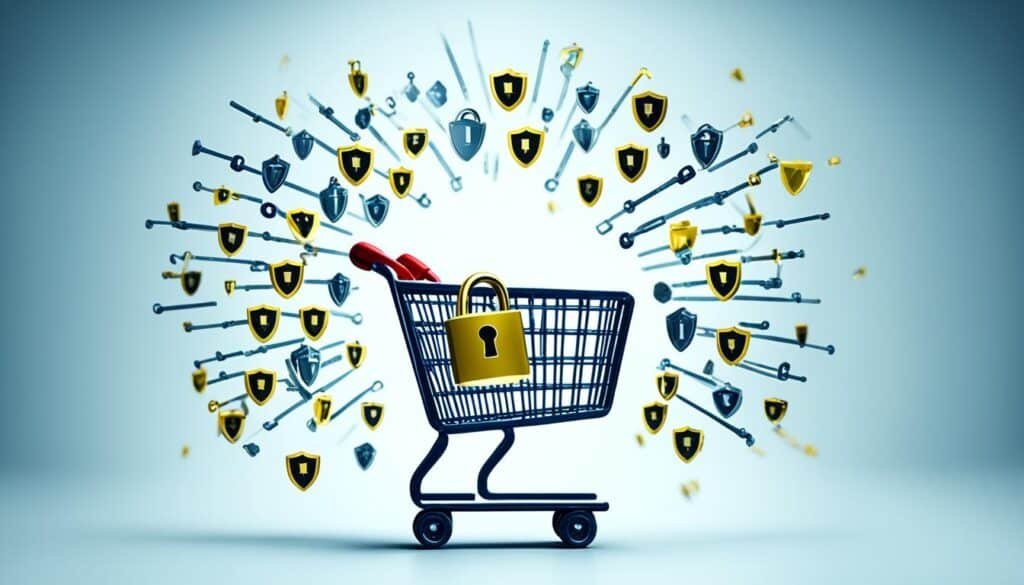Smart Online Shopping : Online shopping has revolutionized the way we shop, offering convenience, variety, and great deals right at our fingertips. However, with the increasing popularity of online shopping, it’s important to stay smart and safe. Maximizing your online shopping experience involves being mindful of potential risks and taking proactive measures to protect yourself. In this article, we will provide you with valuable tips and insights to ensure a safer and more enjoyable online shopping journey.
From doing your research to protect your personal and financial information, we’ll cover all the essential steps you need to take to make the most of your online shopping experience. Whether you’re a seasoned online shopper or just starting out, these tips will help you navigate the digital landscape with confidence and peace of mind.
Key Takeaways:
- Research online retailers and read customer reviews to ensure their reputation.
- Protect your personal and financial information by using secure websites and payment methods.
- Be cautious of deals that seem too good to be true to avoid scams and fraudulent activities.
- Use secure internet connections and be aware of website security features.
- Compare prices, read reviews, and shop from trusted online retailers.
Do Your Research for Safe Online Shopping
Before making any online purchase, it’s essential to do your research. Shopping online offers convenience and a wide range of options, but it’s important to ensure a safe and secure experience. By following these tips, you can make informed decisions and protect yourself while shop online.
Check the Reputation of Online Retailers
When shopping online, it’s crucial to choose reputable online retailers. Look for well-known names and established brands that have a positive track record in customer satisfaction. Read reviews and ratings from other customers to gauge their experiences. A good reputation indicates a higher level of trustworthiness.
Secure Websites with Encryption
When sharing personal or financial information online, ensure that the website you’re visiting is secure. Look for websites with “https://” instead of “http://”. The “s” at the end indicates that the website uses encryption to protect your data. Additionally, many browsers display a lock icon next to the website’s address to signify secure connections.
Stick to Trusted Online Retailers
To minimize the risk of scams or fraudulent activities, stick to trusted online retailers. These retailers have established a reputation for providing reliable products and excellent customer service. Look for well-known brands or retailers with a physical presence as they tend to prioritize customer satisfaction and adhere to industry standards.
“Doing your research before making an online purchase is crucial for ensuring a safe and satisfactory shopping experience. Trustworthy online retailers prioritize customer satisfaction and provide secure platforms for their users.”
By doing your research, checking the reputation of online retailers, looking for secure websites with encryption, and sticking to trusted online retailers, you can shop online with confidence and reduce the risk of encountering fraudulent activities.
To summarize:
- Check the reputation of online retailers
- Look for secure websites with encryption
- Stick to trusted online retailers
Protect Your Personal and Financial Information
When shopping online, it’s crucial to protect your personal and financial information. The internet is filled with potential risks, so taking the necessary precautions is essential to ensure a safe and secure online shopping experience.
To safeguard your personal information, create strong and unique passwords for your online accounts. Use a combination of upper and lowercase letters, numbers, and special characters. Avoid using easily guessable passwords such as your birth date or the word “password.” Remember to never share your passwords with anyone, even if they claim to be from a legitimate source.
When it comes to making online payments, opt for a credit card or a secure payment method that offers buyer protection. Credit cards often have additional security measures in place to protect you from fraudulent transactions. Be cautious with your debit card and avoid using it for online purchases unless you trust the website and know they have secure payment processing.
Before entering any financial or personal information on a website, take the time to review their privacy policy. Look for clear indications that your information will be protected and not shared with third parties without your consent. Additionally, ensure that the website has a secure connection by checking if the URL starts with “https://” and has a padlock symbol in the address bar. This indicates that the website has implemented appropriate encryption measures to protect your data.
“Always remember to protect your personal and financial information when shopping online.”
Finally, be cautious when asked to provide your social security number. Unless absolutely necessary for identity verification purposes, avoid entering your social security number online. This information is highly sensitive and can be used for identity theft if it falls into the wrong hands. Only provide this information on reputable websites that you trust explicitly.
Key Points:
- Create strong and unique passwords for your online accounts
- Use a credit card or secure payment method for online transactions
- Review the privacy policy of websites to ensure your information is protected
- Avoid entering your social security number unless absolutely necessary

| Online Shopping Security Tips | Actions to Take |
|---|---|
| Use strong and unique passwords | Create a unique password for each online account, incorporating a combination of letters, numbers, and special characters. |
| Opt for secure payment methods | Choose credit cards or secure payment platforms that offer buyer protection, minimizing the risk of fraudulent transactions. |
| Check website privacy policies | Before entering personal or financial information, review the website’s privacy policy to ensure your data will be protected. |
| Avoid sharing your social security number | Only provide your social security number on reputable websites and when absolutely necessary for identity verification. |
Be Wary of Deals That Are Too Good to Be True
While online shopping can offer great deals, it’s crucial to be cautious of deals that seem too good to be true. Scammers often use attractive offers to entice unsuspecting shoppers into fraudulent schemes. It’s essential to trust your instincts and be skeptical of prices that are significantly lower than the market average. By staying alert and following these guidelines, you can protect yourself from falling victim to scams and fraudulent activities.
Here are some key tips to help you navigate the online shopping landscape safely:
- Stick to trusted retailers: When in doubt, choose well-known and reputable online retailers. These retailers have established themselves in the market and are less likely to engage in fraudulent activities.
- Research the seller: Before making a purchase from an unfamiliar seller or website, do your research. Look for customer reviews and ratings to get an idea of their reputation. If there are numerous negative reviews or complaints, it’s best to avoid them.
- Compare prices: Take the time to compare prices across different websites. If you come across a deal that seems too good to be true, check if other retailers also offer a similar price. If the price difference is significant, it could be a red flag indicating potential fraud.
- Be cautious of suspicious websites: Pay attention to the design and functionality of the website. If it looks unprofessional, has spelling or grammar errors, or lacks secure payment options, it may be a fraudulent website. Trustworthy websites often have secure payment gateways and clearly displayed contact information.
- Read customer reviews: Customer reviews can provide valuable insights into the authenticity of a product or seller. Look for reviews that mention the product’s quality, shipping experience, and overall satisfaction. If a product has overwhelmingly negative reviews or lacks any reviews at all, it’s worth questioning its legitimacy.
Remember, the best way to stay safe while shopping online is to be vigilant and follow your instincts. If a deal seems too good to be true, it’s essential to proceed with caution and take the necessary steps to protect yourself.
“If a deal seems too good to be true, it’s essential to proceed with caution and take the necessary steps to protect yourself.”
The Importance of Trustworthy Retailers
When it comes to online shopping, choosing trusted retailers is your best defense against scams and fraudulent activities. By shopping from established and reputable retailers, you can minimize the risks associated with deals that appear too good to be true. These retailers prioritize customer satisfaction and have robust security measures in place to protect your personal and financial information.
Stay Safe and Secure Online
Online shopping can be a convenient and rewarding experience, but it’s essential to stay vigilant and protect your personal information. By following these guidelines and being wary of deals that seem too good to be true, you can make informed purchasing decisions and enjoy a safe online shopping experience.

Use Secure Internet Connections
When shopping online, it’s crucial to prioritize internet security. One of the key aspects of this is using secure internet connections to safeguard your personal information from potential threats.
An important step in securing your online shopping experience is avoiding the use of public Wi-Fi networks for making purchases. Public Wi-Fi is often unsecured, making it easier for hackers to access your sensitive data.
Instead, consider using a virtual private network (VPN) to establish a secure and encrypted internet connection. A VPN creates a private network from a public internet connection, ensuring that your online activities are protected from prying eyes.
By using a VPN, you can encrypt your data and add an extra layer of security to your online transactions. This prevents hackers from intercepting your personal information and helps to safeguard your financial details.
To further enhance your internet security, follow these basic tips:
- Ensure your VPN is reputable and reliable, with good customer reviews and strong encryption protocols.
- Always verify the authenticity of the VPN app or software before downloading it, as there are malicious entities that impersonate legitimate VPN services.
- Keep your VPN software up to date to benefit from the latest security patches and improvements.
- Avoid using free or unknown VPN services, as they may compromise your security and privacy.
By utilizing a VPN and avoiding public Wi-Fi networks, you can significantly reduce the risk of falling victim to online scams or having your personal information compromised.
Take a look at the table below for a quick comparison between using public Wi-Fi and a VPN:
| Public Wi-Fi | Virtual Private Network (VPN) |
|---|---|
| Unsecured and vulnerable to hackers | Secure and encrypted connection |
| Your personal information can be intercepted | Your data is protected from prying eyes |
| Increased risk of identity theft and fraud | Reduced risk of identity theft and fraud |
As the table highlights, using a VPN provides a safer online shopping experience by mitigating the risks associated with public Wi-Fi networks.

Check for Website Security Features
Before entering any personal or financial information on a website, it is crucial to confirm its security. Take a moment to ensure that the website you are on is secure and trustworthy, protecting your sensitive data from potential threats.
One of the key security indicators you should look for is the lock icon in the address bar. This lock icon signifies that the website is utilizing a secure sockets layer (SSL), a technology that encrypts your data and establishes a secure connection between your browser and the website’s server.
When the lock icon is present, it indicates that the website you are visiting has taken steps to protect your information from unauthorized access. It encrypts the data you enter, including passwords, credit card numbers, and other personal details, making it difficult for cybercriminals to intercept and misuse it.
In addition to the lock icon, it is also essential to pay attention to any warnings or errors that may appear in the address bar. If your browser displays any alerts about potential security risks or issues with the website’s SSL certificate, it is advisable to navigate away from the site and refrain from entering any sensitive information.
By being vigilant about checking for website security features, you can ensure a safer online shopping experience and minimize the risk of falling victim to identity theft or financial fraud.

Key Points:
- Look for the lock icon in the address bar to confirm a secure connection.
- A lock icon indicates that the website uses a secure sockets layer (SSL).
- Pay attention to any warnings or errors displayed by your browser.
- Avoid entering personal or financial information on websites with security risks.
Compare Prices and Read Reviews
When it comes to online shopping, one of the key advantages is the ability to compare prices from different retailers before making a purchase. By taking the time to compare prices, you can ensure that you are getting the best deal available.
Start by identifying the product you want to buy and search for it on various online platforms. Visit trusted online retailers that offer the product and compare their prices. It’s important to note that prices may vary depending on factors such as seller ratings, shipping fees, and promotional offers.
Additionally, reading reviews from other customers provides valuable insights into the product’s quality and reliability. Look for detailed and honest reviews that highlight both the strengths and weaknesses of the product. Keep an eye out for common themes or recurring issues mentioned in multiple reviews.
When comparing prices and reading reviews, it’s essential to stick to trusted online retailers with positive customer feedback. Reputable platforms like Amazon, eBay, and Best Buy have established credibility and often offer competitive prices. Ensure that the retailer has a reliable return policy and customer service in case you encounter any issues with your purchase.
To sum up, take advantage of the benefits of online shopping by comparing prices and reading reviews before making a purchase. This allows you to make an informed decision and ensures that you get the best value for your money.
Protect Yourself from Identity Theft
Identity theft is a serious concern when shopping online. With the increasing number of data breaches and cyber threats, it’s crucial to take proactive measures to protect your personal information. By following these essential steps, you can minimize the risk of identity theft and safeguard your financial well-being.
1. Monitor Your Credit Card Statements
Regularly review your credit card statements to identify any unauthorized charges. If you notice any suspicious activity, contact your credit card company immediately. Prompt action can help mitigate financial losses and prevent further fraudulent transactions.
2. Guard Your Social Security Number
Your social security number is a valuable piece of personal information that should be handled with caution. Only provide this sensitive data when absolutely necessary, particularly when dealing with trusted sources. Be wary of websites or individuals requesting your social security number without a legitimate reason.
3. Consider Identity Theft Protection Services
Identity theft protection services can provide an additional layer of security and peace of mind. These services often offer credit monitoring, fraud alerts, and assistance in resolving identity theft issues. Research reputable providers and evaluate their features to find the best solution for your needs.
“Your personal information is as valuable as your finances. It’s crucial to take proactive steps to protect yourself from identity theft.”
4. Stay Informed About Data Breaches
Keep yourself updated about major data breaches in order to take necessary precautions. When a data breach occurs, affected companies often notify customers and provide instructions on how to protect themselves. Stay vigilant and take immediate action to secure your accounts and personal information.
5. Employ Secure Passwords and Authentication
Create strong and unique passwords for your online accounts. Use a combination of uppercase and lowercase letters, numbers, and special characters. Additionally, enable two-factor authentication wherever possible to add an extra layer of security.
6. Be Cautious of Phishing Attempts
Be vigilant when it comes to phishing attempts, which are fraudulent messages sent by cybercriminals disguised as legitimate organizations. Avoid clicking on suspicious links or sharing personal information in response to such emails or messages. Verify the authenticity of requests by directly contacting the organization through their official website or customer support channels.
7. Safeguard Your Personal Devices
Ensure the security of your personal devices by keeping them updated with the latest software patches and antivirus protection. Use a secure internet connection and avoid conducting sensitive transactions on public Wi-Fi networks. When using public computers or devices, be cautious of keyloggers or other malicious software that may compromise your personal information.
“Protecting your personal information requires diligence and awareness. Stay one step ahead of identity thieves by implementing these essential measures.”
8. Educate Yourself and Spread Awareness
Stay informed about the latest identity theft trends and prevention techniques. Share your knowledge with friends, family, and colleagues to help them stay protected as well. Together, we can create a safer online environment for everyone.
9. Recognize the Signs of Identity Theft
Be alert and identify the signs of identity theft. These may include unauthorized financial transactions, unexpected account closures, denial of credit, or receiving bills or collection notices for unfamiliar accounts. If you suspect any unusual activity, act promptly and report it to the relevant authorities.
By implementing these crucial steps, you can significantly reduce the risk of falling victim to identity theft. Stay vigilant, protect your personal information, and enjoy a secure online shopping experience.

Take Advantage of Online Shopping Apps
When it comes to secure online shopping, utilizing dedicated shopping apps can offer convenience and peace of mind. Many retailers offer their own apps, designed to enhance the overall shopping experience and provide additional security features. By downloading these reputable shopping apps from trusted sources like the Apple App Store or Google Play Store, you can shop with confidence.
Shopping apps are specifically tailored to provide a seamless online shopping experience right from your mobile device. With user-friendly interfaces, personalized recommendations, and easy navigation, these apps make it easier than ever to find and purchase your desired products.
Updating these shopping apps regularly is essential to ensure you have access to the latest security features and bug fixes. App updates often include enhanced encryption protocols and other security measures to protect your personal and financial information during online transactions.
Benefits of Shopping Apps:
- Ease and convenience of shopping on-the-go
- Seamless integration with your preferred retailers
- Personalized recommendations based on your shopping history
- Instant access to exclusive discounts and promotions
- Secure payment options to safeguard your financial information
By taking advantage of shopping apps, you can enjoy the benefits of secure online shopping while maximizing your convenience and saving time. Whether you’re browsing for fashion, electronics, or household items, these apps provide a streamlined and protected shopping experience.

Time Your Purchases for the Best Deals
Timing your online purchases can have a significant impact on your savings. By being strategic about when you make your purchases, you can take advantage of special events, holidays, and online shopping trends to score the best deals.
Black Friday and Cyber Monday
Black Friday and Cyber Monday are two major shopping events that offer massive discounts and deals both in-store and online. Taking place the day after Thanksgiving, Black Friday is known for its doorbuster sales, while Cyber Monday focuses on online-only offers.
During these shopping frenzies, retailers across the country lower their prices, making it an ideal time to splurge on big-ticket items or stock up on holiday gifts. Many online stores extend their discounts for the entire weekend, allowing shoppers to score incredible savings without leaving the comfort of their homes.
To ensure you don’t miss out on these deals, mark your calendar and do some research beforehand. Create a list of the items you want to purchase and compare prices across different retailers. Keep in mind that popular products sell out quickly, so it’s best to be prepared and ready to make your purchase as soon as the sale starts.
Online Shopping Trends and Seasonal Sales
In addition to Black Friday and Cyber Monday, it’s essential to stay on top of online shopping trends and seasonal sales throughout the year. Retailers often offer discounts during specific times, such as end-of-season sales, back-to-school promotions, or holiday clearance events.
By paying attention to these trends, you can optimize your online shopping experience and save money on items you need or want. Keep an eye out for newsletters, social media updates, or promotional emails from your favorite brands to stay informed about upcoming sales and exclusive offers.
“Timing your online purchases strategically can result in significant savings.”
Remember to compare prices across different retailers to ensure you’re getting the best deal. Read customer reviews to make informed decisions and consider setting price alerts for specific products you’re interested in purchasing.

Timing your online purchases wisely can make a substantial difference when it comes to finding the best deals. Whether you’re hunting for discounts during Black Friday and Cyber Monday or taking advantage of seasonal sales, staying informed and being proactive can help you save money without sacrificing the convenience of online shopping.
Be Mindful of Shipping Costs
When shopping online, it’s important to consider shipping costs to make sure you get the best value for your money. Shipping charges can significantly impact the overall cost of your purchase, so it’s worth taking a closer look at these fees before completing your transaction.
One way to save on shipping is to check if the retailer offers free shipping once you reach a certain spending threshold. Many online stores provide this benefit, allowing you to qualify for free shipping by adding additional items to your cart. This way, you not only save on shipping costs but also get more bang for your buck.
Alternatively, some retailers may offer the option to ship items to a local store for free pickup. This can be a great way to save on shipping, especially if you have a store nearby. By choosing this option, you eliminate shipping charges altogether and can conveniently collect your purchase at your convenience.
Also Read : Unveiling The Secrets: How To Master The Art Of Smart Shopping
Remember, being mindful of shipping costs can help you make the most of your online shopping experience and complete your purchase with confidence. Take advantage of offers for free shipping or explore alternative delivery options to save money and ensure a seamless shopping experience.

Summary:
- Consider shipping costs when shopping online
- Look for retailers that offer free shipping with a minimum spending threshold
- Add more items to your cart to qualify for free shipping
- Check for the option to ship items to a local store for free pickup
- By being mindful of shipping costs, you can save money and complete your purchase confidently
Conclusion
By implementing the best online shopping practices and utilizing these online shopping hacks and advice, you can optimize your online shopping experience while safeguarding your personal and financial information. It is crucial to conduct thorough research on the online retailer before making a purchase and to choose secure websites with encryption to protect your data.
Always be cautious of deals that seem too good to be true, as they may be fraudulent. Stick to trusted online retailers and compare prices to ensure you’re getting the best deal. Additionally, take advantage of secure internet connections and check for website security features, such as the lock icon in the address bar to protect your information.
To prevent identity theft, monitor your credit card statements regularly and avoid sharing your social security number unless absolutely necessary. Consider using identity theft protection services for added security. Download reputable shopping apps and time your purchases to coincide with special events and holidays for maximum savings.
Finally, be mindful of shipping costs and explore options such as free shipping or in-store pickup. By following these practices, you can have a safe and enjoyable online shopping experience while making the most of the convenience and benefits offered by online retailers. Happy shopping!
FAQ
Q: What are some tips for safe online shopping?
A: Some tips for safe online shopping include using secure sites, shopping on websites you know and trust, using strong passwords, and being cautious with your personal information.
Q: How can I shop safely online with my debit card?
A: To shop safely online with your debit card, make sure to only use secure sites, keep your card details safe, and check the website’s security measures before making a purchase.
Q: What should I do if I suspect a shopping site may be a scam?
A: If you suspect a shopping site may be a scam, avoid making purchases on the site, report it to the Better Business Bureau or the Federal Trade Commission, and warn others about your experience.
Q: Are there any specific internet security products recommended for safe online shopping?
A: Yes, it is recommended to use internet security products that offer protection against malware, phishing scams, and other online threats to ensure a secure shopping experience.
Q: How important is it to use a strong password when shopping online?
A: Using a strong password is crucial for online shopping as it helps protect your personal and financial information from being compromised by hackers or scammers.
Q: Can I use my gift card for online shopping?
A: Yes, you can use gift cards for online shopping on websites that accept them as a form of payment. Make sure to check the gift card’s terms and conditions before making a purchase.
Q: What are the top 10 tips for safe online shopping?
A: The top 10 tips for safe online shopping include using secure websites, keeping your personal information safe, using strong passwords, checking for secure payment options, and being cautious with your debit card details.
Q: How can I shop online safely?
A: To shop online safely, make sure you are using secure Wi-Fi networks, have up-to-date antivirus software, use strong and unique passwords for each online account, and only shop on reputable websites.
Q: How do I know if a website is secure?
A: You can tell if a website is secure if it has “https://” in the URL, has a padlock symbol in the address bar, and is from a reputable company or store that you trust.
Q: Is it safe to use your debit card for online shopping?
A: It is generally safe to use your debit card for online shopping, but be cautious of entering your card details on unsecured websites. It is recommended to use credit cards for online shopping as they offer more protection against fraudulent charges.
Q: What should I do if I suspect online shopping fraud?
A: If you suspect online shopping fraud, you should contact your card issuer immediately, report the incident to the Internet Crime Complaint Center (IC3), and monitor your bank account for any unauthorized transactions.
Q: How can I protect my personal information when shopping online?
A: You can protect your personal information when shopping online by not providing unnecessary details, using a temporary card for online purchases, and being cautious of sharing sensitive information on unfamiliar websites.
Q: What are some tips for safer online shopping?
A: Some tips for safer online shopping include using a password manager, being wary of phishing emails and scams, keeping your devices secure with updates and security software, and verifying the legitimacy of online sellers before making a purchase.





